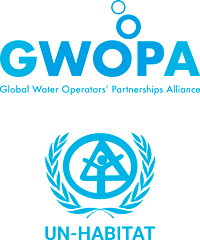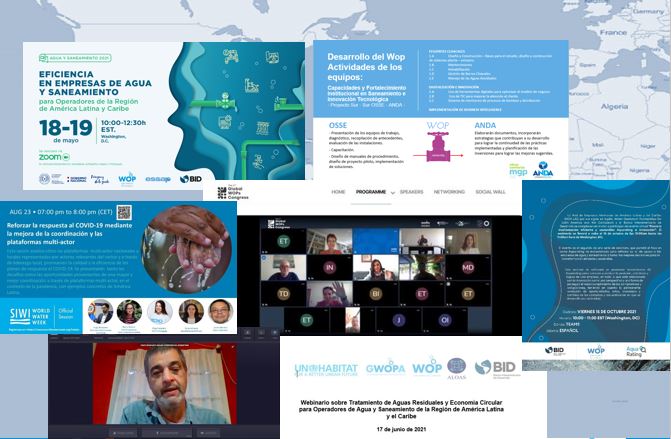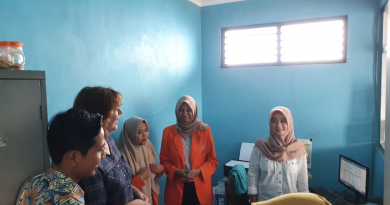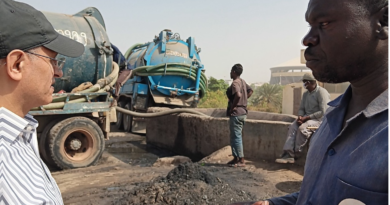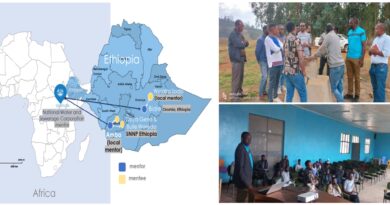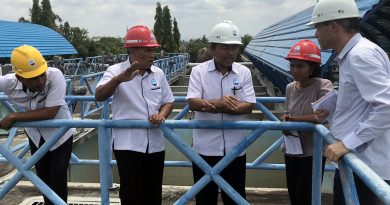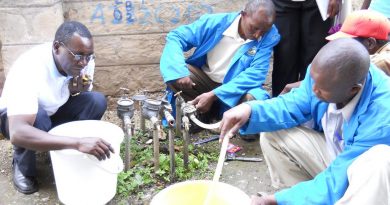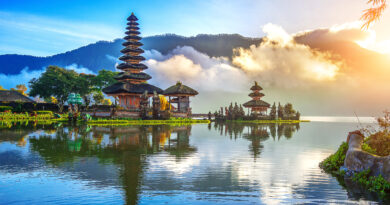2021 for WOP-LAC: WOPs and new exchanges of practices and knowledge (despite the pandemic)
Spanish version below
2021 has once again been a challenging year for WOP-LAC, the regional platform for Latin America and the Caribbean (LAC). Although the protocols related to the COVID-19 pandemic were slightly relaxed allowing a partial resumption of face-to-face activity in workplaces, international travel remained highly restricted. This has affected the realization of water operator partnerships (WOPs), workshops and face-to-face events in the region, and it has directly impacted the activities of WOP-LAC. However, the platform has remained highly active, connecting operators and supporting them in exchanging knowledge, expanding their networks, and adding new learning and practices to its main activities.
New Latino WOPs
With excellent predisposition, Sabesp (Sao Paulo, Brazil) and AyA (San José, Costa Rica) managed to finish their WOP on innovation and technological development started in 2019, while in the last months of the year AySA (Buenos Aires, Argentina) and SAPAL (León, Mexico) carried out a WOP for the exchange of good practices regarding the collection and treatment of wastewater from the tanning industry. Both events had a virtual format.
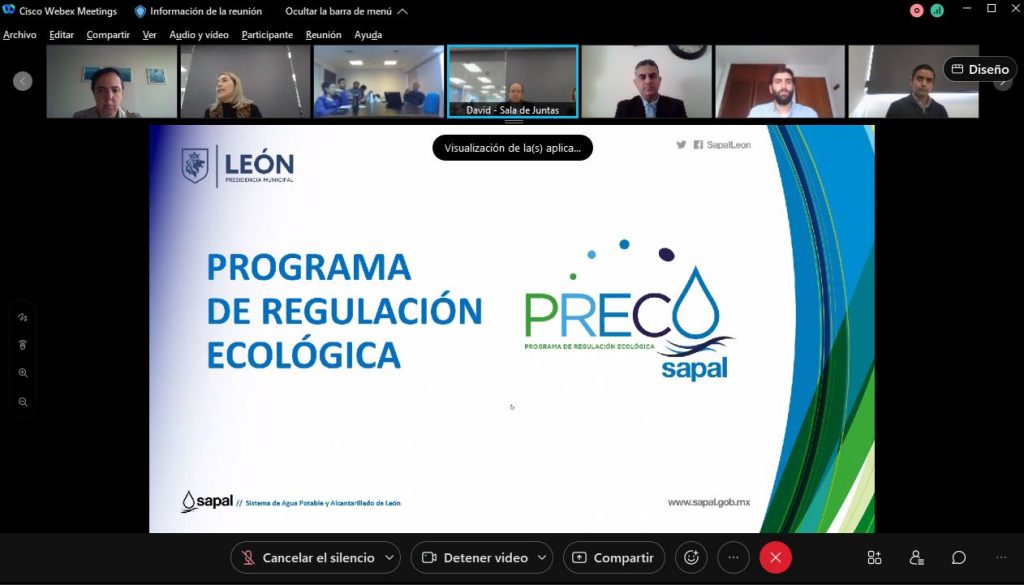
Virtual WOP between AySA and SAPAL
At the same time, two WOPs in the region have been selected to join the EU-WOP Programme. On the one hand, the South-South project OSSE (Mar del Plata, Argentina) and ANDA (San Salvador, El Salvador) with support from WOP-LAC (additional partner) focused on capacity development and institutional strengthening in sanitation and technological innovation. On the other, the North-South project between SEDAPAL (Lima, Peru) and Canal Isabel II (Madrid, Spain) aims for wastewater enhancement as an effective tool in the fight against climate change through reclaimed water and will also work against the coronavirus through its early detection in the sanitation network.
In addition, WOP Colombia, the Colombian national platform, was able to start its activities within the country with the support of the Inter-American Development Bank (IDB). The platform has coordinated the first three WOPs arrangements in 2021 between Aguas de Manizales-Empoduitama (on non-revenue water), EAAB-Aguas de Manizales (on exchange of good practices), and EPM-Aguas de Buga (on non-revenue water, operation and maintenance of aqueducts and sewerages, portfolio management and asset management).
Finally, in November a MoU was signed between EMASESA (Seville, Spain) and EPM (Medellín, Colombia) to implement a WOP next year. This new collaboration will focus on the exchange of different knowledge around infrastructure planning for water supply systems and wastewater networks, control of non-domestic discharges, coverage for the most vulnerable populations, and digital transformation, among several others.
Various knowledge dissemination activities
WOP-LAC coordinated and co-organized numerous virtual events for the dissemination of knowledge and promoted the participation of the platform’s member operators. Among them are the webinar on Efficiency in Water and Sanitation Companies for Operators of the Latin America and the Caribbean Region, the series of webinars on Management and Monitoring of Wastewater Treatment for Sanitation Operators of the region, and the webinars from GWOPA Utility Climate Action and Utilities Fight COVID-19.
It is worth making a separate mention of the 4th Global WOPs Global Congress, which had a wide participation of LAC operators, both in the regional session and in 11 thematic sessions.
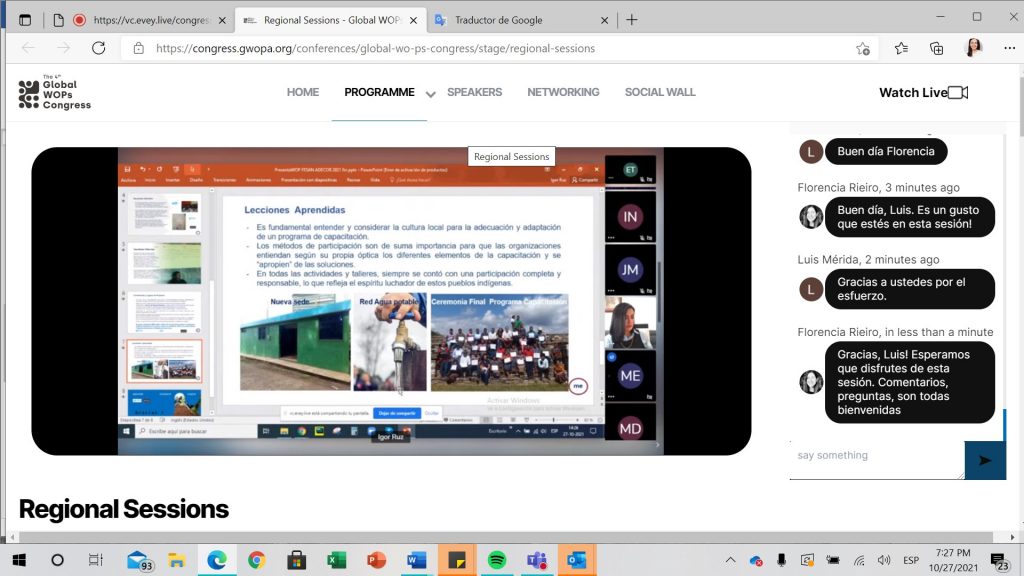
WOP-LAC presenting at the 4th Global WOPs Congress, convened by the UN-Habitat’s GWOPA
Also referring to international events, WOP-LAC had the opportunity to participate in the session Strengthening the Response to COVID-19 by Improving Coordination and Multi-stakeholder Platforms organized by WASH-LAC within the framework of Stockholm’s World Water Week. The platform discussed the role that multi-stakeholder platforms played (and do play) in the provision of water, sanitation and hygiene services during the pandemic.
The proposals and contributions of the institutions that support the platform (AySA, BID, GWOPA), as well as the members of its Steering Committee, have helped WOP-LAC to develop a series of activities of regional interest, with active participation of operators, during this second year of the pandemic. On the other hand, virtuality allowed these events to reach entire work teams and specialists who have been involved in new and varied learning instances.
The coming year will bring new opportunities for the water and sanitation sector in LAC, and with it also new challenges. WOP-LAC together with GWOPA will continue working for the development of capacities, the construction of networks and the exchange and collaboration between operators and other key stakeholders from the sector.
El 2021 ha sido nuevamente un año de desafíos para WOP-LAC, la plataforma regional para América Latina y el Caribe (ALC). Si bien los protocolos relacionados con la pandemia de COVID-19 se flexibilizaron levemente permitiendo retomar parcialmente la actividad presencial en los lugares de trabajo, los viajes internacionales siguieron altamente restringidos. Esto ha afectado la realización de hermanamientos entre operadores (WOPs por sus siglas en inglés) y talleres y eventos presenciales en la región, y ha impactado directamente en las actividades de WOP-LAC. No obstante, la plataforma se ha mantenido altamente activa, conectando a operadores y apoyándolos en el intercambio de conocimientos, la ampliación de sus redes, y en sumar nuevos aprendizajes y prácticas a sus principales actividades.
Nuevos WOPs latinos
Con excelente predisposición, Sabesp (Sao Paulo, Brasil) y AyA (San José, Costa Rica) lograron terminar el hermanamiento sobre innovación y desarrollo tecnológico iniciado en el 2019, mientras que en los últimos meses del año AySA (Buenos Aires, Argentina) y SAPAL (León, Mexico) llevaron adelante un WOP para el intercambio de buenas prácticas en materia de recolección y tratamiento de aguas residuales provenientes de la industria curtidora. Ambos eventos tuvieron formato virtual.

WOP virtual entre AySA y SAPAL
Paralelamente dos WOPs en la región han resultado seleccionados para integrar el EU-WOP Programme. Por un lado, el proyecto Sur-Sur OSSE (Mar del Plata, Argentina) y ANDA (San Salvador, El Salvador) con apoyo de WOP-LAC (socio adicional) sobre desarrollo de capacidades y fortalecimiento institucional en saneamiento e innovación tecnológica. Por otro el proyecto Norte-Sur entre SEDAPAL (Lima, Perú) y Canal Isabel II (Madrid, España) para la puesta en valor del agua residual como herramienta eficaz en la lucha contra el cambio climático a través del agua regenerada, y contra el coronavirus mediante su detección temprana en la red de saneamiento.
Además, WOP Colombia, plataforma nacional colombiana, pudo iniciar sus actividades dentro del país con apoyo del Banco Interamericano de Desarrollo (BID). La plataforma ha coordinado tres primeros hermanamientos en el 2021 entre Aguas de Manizales-Empoduitama (sobre sobre agua no contabilizada), EAAB-Aguas de Manizales (sobre intercambio de buenas prácticas), y EPM-Aguas de Buga (sobre agua no contabilizada, operación y mantenimiento de acueducto y alcantarillado, gestión de cartera y gestión de activos).
Finalmente, en el mes de noviembre se ha firmado el MoU entre EMASESA (Sevilla, España) y EPM (Medellín, Colombia) para implementar un WOP el año próximo. El hermanamiento se focalizará en el intercambio de diferentes conocimientos, entre ellos, la planeación de infraestructura de sistemas de provisión de agua potable y redes de aguas residuales, el control de vertimientos no domésticos, la cobertura para poblaciones vulnerables, y la transformación digital.
Variadas actividades de difusión de conocimiento
WOP-LAC avanzó en la coordinación y coorganización de numerosos eventos virtuales de difusión de conocimiento, promoviendo la participación de los operadores miembros de la plataforma. Entre ellos se encuentran el webinario sobre Eficiencia en Empresas de Agua y Saneamiento para Operadores de la Región de América Latina y el Caribe, la serie de webinarios sobre Gestión y Monitoreo del Tratamiento de Aguas Residuales para Operadores de Saneamiento de la región, y los webinarios de GWOPA Utility Climate Action y Utilities Fight COVID-19.
Vale hacer una mención aparte al 4o Congreso Mundial de WOPs, que contó con una amplia participación de operadores de ALC, tanto en la sesión regional como en 11 sesiones temáticas.

WOP-LAC presentado en el 4o Congreso Mundial de WOPs, organizado por UN-Habitat GWOPA
También referido a eventos internacionales, WOP-LAC tuvo la oportunidad de participar en la sesión Reforzar la Respuesta al COVID-19 mediante la Mejora de la Coordinación y las Plataformas Multi-actor organizada por WASH-LAC en el marco de la Semana Mundial del Agua de Estocolmo. La plataforma indagó en el papel que desempeñaron (y desempeñan) las plataformas multi-actor en la prestación de servicios de agua, saneamiento e higiene durante la pandemia.
Las propuestas y aportes de las instituciones de apoyo a la plataforma (AySA, BID, GWOPA), así como también de los miembros del Comité Directivo, han contribuido a que WOP-LAC lograra desarrollar una serie de actividades de interés regional, con activa participación de los operadores, en este segundo año de pandemia. Por otra parte, la virtualidad permitió que estos eventos llegaran a equipos enteros de trabajo y especialistas en las respectivas problemáticas tratadas quienes han podido aprovechar de nuevas y variadas instancias de aprendizaje.
El año que entra traerá nuevas oportunidades para el sector del agua y el saneamiento en ALC, y con ello nuevos desafíos. WOP-LAC junto con GWOPA seguirán trabajando juntos por el desarrollo de capacidades, la construcción de redes y el intercambio y colaboración entre operadores y otros actores claves involucrados en el sector.
